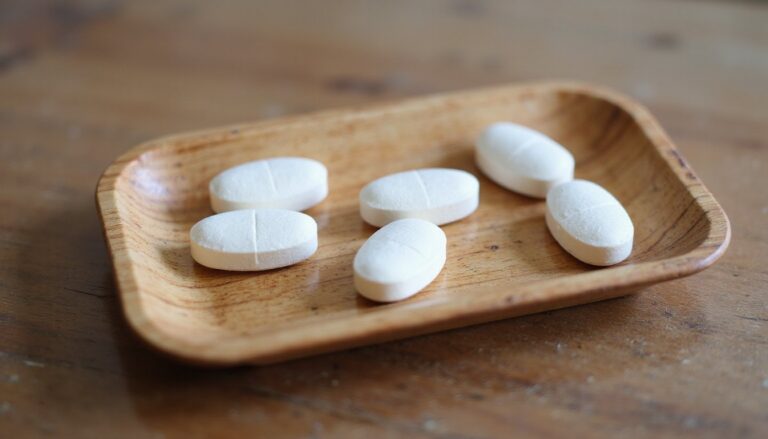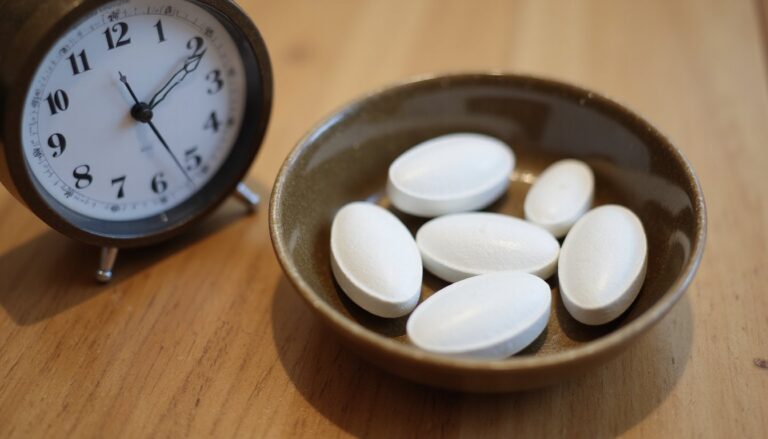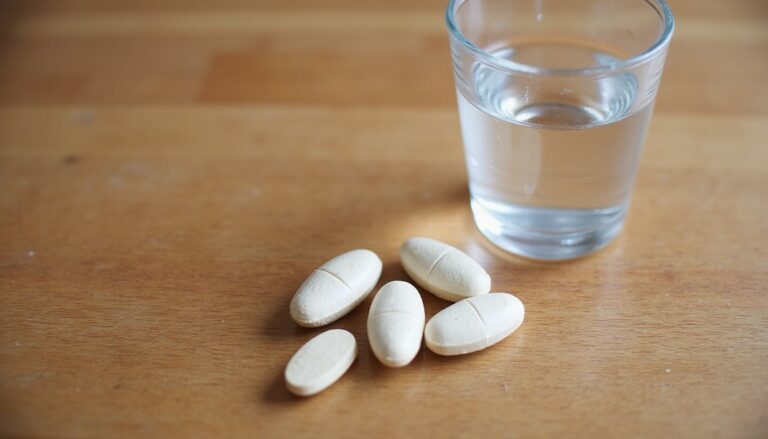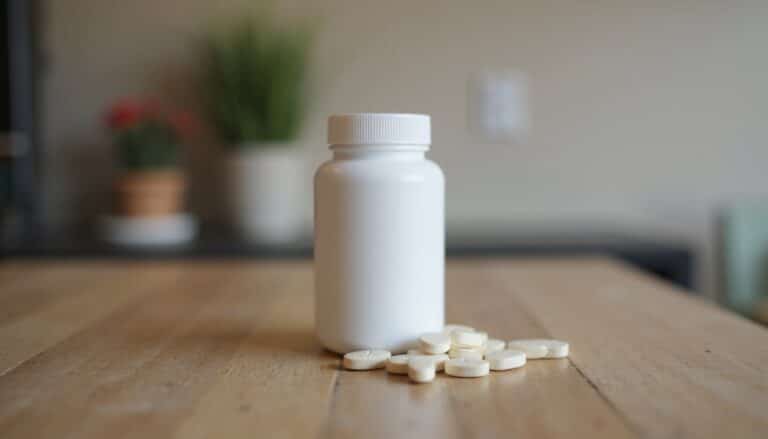Drinking alcohol after exercise drastically compromises your body’s recovery processes in multiple ways. It reduces muscle protein synthesis by up to 37%, disrupts hormonal balance by increasing cortisol and decreasing testosterone, and amplifies post-workout dehydration through its diuretic effects. Your body prioritizes metabolizing alcohol over muscle repair, leading to impaired protein turnover and delayed recovery. Understanding alcohol’s full impact on exercise recovery can help you make informed training decisions.
The Science Behind Alcohol and Exercise Recovery
While many athletes enjoy post-workout drinks, alcohol’s effects on exercise recovery extend far beyond temporary impairment. The alcohol absorption dynamics directly interfere with your body’s muscle protein conversion processes, substantially reducing muscle protein synthesis a vital mechanism for repair and growth. Your body’s recovery window, lasting up to 24 hours post-exercise, becomes compromised when alcohol enters your system. Additionally, alcohol significantly reduces the production of human growth hormone, which plays a critical role in muscle repair. Studies have shown that alcohol consumption can decrease your muscle protein synthesis by up to thirty-seven percent.
During this decisive period, alcohol triggers increased enzyme activity linked to muscle breakdown while simultaneously suppressing your body’s ability to synthesize new protein tissue. The metabolic impact is particularly severe, as your system prioritizes alcohol processing over muscle recovery. Your hormonal balance shifts unfavorably, with heightened cortisol and decreased testosterone levels creating an environment that’s counterproductive to muscle development and repair. The process of rehydrating becomes especially challenging since replacing fluids lost during exercise requires twice as much water after consuming alcoholic beverages.
Immediate Effects on Your Post-Workout Body
When you drink alcohol after exercising, you’re facing a double dehydration threat as both activities cause significant fluid loss, with alcohol’s diuretic effects amplifying the body’s already dehydrated state. Your body’s muscle recovery process becomes severely compromised as protein synthesis requires proper hydration to function efficiently. The combination of exercise-induced fluid loss and alcohol’s dehydrating properties creates a physiological environment that’s particularly unfavorable for muscle repair and growth. Research shows that consuming alcohol post-workout can reduce muscle protein synthesis by 37% when combined with protein intake. Additionally, drinking after exercise can cause higher cortisol levels, creating further obstacles for optimal recovery and performance gains.
Dehydration Risks Post-Exercise
Because alcohol drastically impairs your body’s natural thermoregulation mechanisms, consuming it after exercise creates a perfect storm of dehydration risks. Your already-reduced blood volume from exercise becomes further compromised, forcing your heart to work harder while limiting oxygen delivery to recovering muscles. Plasma osmolality changes become more severe when fluid losses exceed 2% of body mass during exercise and alcohol consumption. It’s essential to consider staying hydrated with water instead of alcoholic beverages after physical activity.
You’ll face heightened heat exposure risks as your body struggles to regulate its core temperature, potentially leading to heat stroke potential, especially if you’ve just completed an endurance workout. The combination of exercise-induced fluid loss and alcohol’s diuretic effects disrupts your cellular osmotic balance, accelerating muscle fatigue and impairing motor control. For high-intensity athletes who lose over 3L of fluid per hour during training, alcohol consumption can severely compromise your post-workout recovery, leading to dizziness, nausea, and impaired concentration. This dangerous combination can significantly affect your mental function and concentration, making post-exercise recovery even more challenging.
Muscle Recovery Disruption
Despite your best efforts in the gym, consuming alcohol immediately after exercise can severely undermine your muscle recovery process. Research shows that alcohol disrupts protein turnover disruption by suppressing muscle protein synthesis up to 37% post-workout, greatly impairing your body’s natural repair mechanisms.
When you drink alcohol after training, your liver prioritizes metabolizing it over muscle recovery, leading to compromised anabolic signaling pathways essential for muscle growth and repair. This interference can last up to 24 hours post-exercise. The body struggles to efficiently utilize carbohydrates and fats because alcohol disrupts metabolic pathways for energy production.
- Your muscle protein synthesis decreases even when consuming alcohol with protein-rich meals
- Your hormonal balance shifts unfavorably, with lower testosterone and higher cortisol levels
- Your body experiences increased oxidative stress, prolonging muscle damage repair time
This metabolic interference directly impacts your training results, potentially limiting long-term strength and muscle gains.
Dehydration and Recovery Performance
When you mix alcohol with post-workout recovery, you’re amplifying fluid loss beyond your exercise-induced dehydration, as alcohol’s diuretic effects can double your rehydration requirements. Your body’s electrolyte balance becomes severely disrupted, with alcohol accelerating the excretion of pivotal minerals like sodium and potassium that are essential for proper muscle function and hydration status. These combined dehydration effects drastically extend your recovery timeline, as your body must initially address the dual challenges of exercise and alcohol-induced fluid deficits before initiating proper muscle repair and regeneration processes. Research shows that consuming beverages with even 1% to 4% alcohol can significantly impact your body’s ability to restore proper fluid balance after exercise.
Fluid Loss During Exercise
Athletes need to zero in on proper hydration, as fluid loss during exercise can extensively impair performance across multiple domains. Research shows that even a modest 2% body mass loss from dehydration reduces aerobic capacity by 5% in cool conditions, with more severe impacts in heat. Your fluid replacement strategies become indispensable when you consider that 31.9% of athletes start exercise already dehydrated. Studies indicate that blinded research methods provide the most accurate assessment of dehydration’s true effects on athletic performance. Athletes who maintain proper hydration tend to demonstrate higher nutritional knowledge compared to their dehydrated counterparts.
Key impacts of exercise-induced fluid loss:
- Decreased VO₂ max by ~5% with ≥3% body mass loss
- Reduced peak power output by 4.8% during anaerobic efforts
- Impaired endurance capacity, even with just 1-2% fluid loss
These performance decrements worsen in hot conditions, making electrolyte supplementation and proactive hydration essential. For endurance events, you’ll need structured hydration plans to offset sweat losses that can exceed 1L/hour.
Electrolyte Balance Disruption
Understanding alcohol’s impact on electrolyte balance reveals a complex interplay between hydration status and recovery performance. When you consume alcohol after exercise, you’ll experience increased losses of vital minerals like sodium, potassium, and magnesium through enhanced urinary excretion and sweating. These deficits can greatly impair your nerve function and muscle recovery. Alcohol inhibits the release of vasopressin, causing your body to produce more urine and further disrupting mineral balance.
Your body’s electrolyte repletion techniques become compromised as alcohol metabolism generates additional oxidative stress, further straining your recovery systems. Research shows that chronic alcohol consumption creates cumulative electrolyte deficiencies, potentially leading to prolonged fatigue and decreased exercise performance. Without proper mineral replenishment, you’ll face extended recovery times and increased risk of muscle cramps and spasms. This disruption becomes particularly problematic when combined with the dehydrating effects of both exercise and alcohol consumption. Sports drinks containing 50-60 mmol/L sodium are recommended to help restore electrolyte balance during recovery.
Recovery Time Increases
The combination of alcohol consumption and post-workout recovery creates a substantial challenge for your body’s restoration processes. Research shows that consuming alcohol extends your recovery timeline and leads to cumulative impairment of rehabilitation functions, particularly during the critical initial hour post-exercise. Your body expends valuable energy on breaking down toxins instead of focusing on muscle repair and growth.
- Your body requires up to twice the normal amount of water for rehydration when you consume alcohol, considerably delaying your return to baseline hydration levels
- Even moderate alcohol intake (2-3 units) interferes with muscle protein synthesis for up to 24 hours, compromising your body’s repair mechanisms
- Regular alcohol consumption compounds these effects, creating delayed rehabilitation patterns that can persist, especially following high-intensity or resistance training
These impacts are dose-dependent, with higher alcohol quantities further extending your recovery window and potentially compromising your subsequent training sessions.
Impact on Muscle Growth and Repair
Several key biological mechanisms demonstrate alcohol’s detrimental impact on muscle growth and repair following exercise. When you consume alcohol during the critical 24-hour recovery window, it actively suppresses muscle protein synthesis (MPS), even if you’re eating protein-rich meals. Through the inhibition of mTOR pathways, alcohol directly interferes with your body’s ability to repair muscle fiber damage and achieve joint pain alleviation.
The suppression of MPS occurs in a dose-dependent manner, meaning the more you drink, the more you’ll compromise your recovery. Your body’s repair mechanisms face additional challenges from alcohol-induced dehydration and oxidative stress. This disruption isn’t just temporary – chronic alcohol consumption during recovery periods can lead to cumulative repair deficits and impaired training adaptations over time, substantially affecting your long-term muscle development goals.
Hormonal Disruptions From Drinking
Post-workout hormonal balance faces considerable disruption when alcohol enters your system, creating a cascade of endocrine responses that compound the muscle repair challenges. The alcohol timing profoundly impacts three key hormones essential for recovery:
- Testosterone suppression occurs immediately, though levels may remain heightened longer than normal, potentially interfering with proper hormone utilization
- Growth hormone production decreases sharply, compromising your body’s ability to synthesize new muscle protein and repair damaged tissue
- Cortisol levels spike abnormally, accelerating muscle protein breakdown and counteracting the anabolic effects of your workout
While acute consumption can temporarily derail your recovery, chronic alcohol use poses even greater risks through persistent hormonal imbalances and nutrient deficiencies. These disruptions impair your body’s ability to adapt to training stimuli and build strength effectively.
Metabolic Changes and Nutrient Processing
Understanding alcohol’s metabolic interference reveals why your post-exercise recovery is impaired enormously when drinking. When alcohol enters your system, it disrupts your digestion efficiency by inhibiting key enzymes in the citric acid cycle, reducing ATP production and compromising energy replenishment.
Your body’s nutrient partitioning becomes severely compromised as alcohol forces metabolic priority, diverting resources away from recovery processes. You’ll experience up to 40% reduction in muscle protein synthesis, while simultaneously facing increased protein breakdown. Your muscles’ ability to restore glycogen becomes limited, even when you’re consuming adequate carbohydrates. In addition, your body’s glucose uptake in skeletal muscle decreases, and liver gluconeogenesis becomes inhibited. These metabolic disruptions persist for over 8 hours, greatly hampering your recovery between training sessions.
Sleep Quality and Recovery Timeline
A single alcoholic drink near bedtime initiates a cascade of sleep disruptions that severely compromise your post-workout recovery. Your sleep quality deteriorates as alcohol interferes with critical REM sleep stages, leading to non-restorative rest and prolonged recovery delays. These disrupted sleep cycles can impact your performance for up to three days after drinking.
- Your testosterone-to-cortisol ratio decreases, directly impeding muscle synthesis and repair
- Your body’s inflammatory response becomes limited, reducing injury healing efficiency
- Your skill acquisition and memory formation suffer due to compromised REM sleep patterns
Even if you feel sedated initially, reduced sleep quality persists, and no adaptation occurs with regular consumption. You’ll need at least two nights of normal sleep to restore preferable recovery capacity, affecting both your physical performance and cognitive function during training periods.
Long-Term Effects on Athletic Performance
Regular alcohol consumption chips away at athletic performance through multiple physiological pathways, creating cumulative deficits that become increasingly difficult to reverse. You’ll experience a significant decline in your VO₂ max, compromising endurance capacity, while your explosive power diminishes due to impaired fast-twitch muscle fiber recruitment.
Your bone density maintenance suffers as alcohol suppresses osteoblast activity and disrupts hormone balance, leading to increased fracture risks. Injury risk mitigation becomes challenging as alcohol weakens connective tissue integrity and slows healing processes. You’ll notice degraded hand-eye coordination and slower reaction times, affecting your competitive edge in precision-based activities. These impacts compound over time, as alcohol’s interference with protein synthesis and immune function creates a cascade of performance limitations that can permanently alter your athletic trajectory.
Smart Strategies for Social Drinking Athletes
While maintaining peak athletic performance requires careful attention to recovery, social drinking doesn’t have to derail your fitness goals when you implement strategic protocols. When celebrating achievements or managing peer pressure, you’ll need to balance social connections with your body’s recovery needs.
- Schedule your drinking sessions strategically, waiting at least 72 hours post-workout to allow testosterone levels to normalize and muscle repair to progress
- Choose lower-alcohol options and maintain strict hydration protocols by consuming water before, during, and after social events
- Communicate your boundaries clearly to your social circle and select environments where drinking isn’t the primary focus
For ideal recovery, limit alcohol intake to 1-2 drinks per session and prioritize post-exercise nutrition to counteract potential nutrient depletion. Time your social gatherings after recovery meals to minimize metabolic disruption.
Frequently Asked Questions
Does the Type of Alcohol Consumed Affect Recovery Differently?
Yes, alcohol types impact recovery differently. Higher-alcohol spirits cause more rapid dehydration and greater disruption to muscle protein synthesis compared to lower-alcohol beverages like beer. While beer contains trace nutrients and carbohydrates, it is crucial to recognize that alcohol consumption timing matters more than the type. You’ll experience negative alcohol recovery effects regardless of your drink choice, but moderate beer consumption paired with water may minimize these impacts versus hard liquor.
Can Taking Supplements Before Drinking Reduce Alcohol’s Impact on Recovery?
While you might hope supplements could shield you from alcohol’s effects, research doesn’t support this strategy. Pre-drinking supplements can’t prevent alcohol’s fundamental disruption of nutrient absorption or its interference with post-exercise inflammation management. Even well-timed protein, BCAAs, or antioxidants won’t fully counteract alcohol’s negative impacts on recovery. While electrolytes may help with hydration, they can’t address alcohol’s broader metabolic and hormonal disruptions to your body’s repair processes.
How Long Should You Wait After Training Before Having Alcoholic Drinks?
You should wait at least 2-4 hours after training before consuming alcohol to allow your body’s recovery processes to initiate effectively. Your personal hydration needs must be met initial guarantee you’re fully rehydrated and have replenished electrolytes. The timing of alcohol consumption is vital as your body needs this window to begin protein synthesis and hormonal rebalancing. For ideal outcomes, consider extending this wait time to 4-6 hours.
Do Athletes With Higher Muscle Mass Process Alcohol Differently During Recovery?
Yes, you’ll experience more pronounced effects of alcohol with higher muscle mass. Your increased muscle fiber density requires greater protein synthesis and regeneration capacity. Due to your larger muscle volume, you’ll face amplified protein synthesis impairment when drinking alcohol. Your augmented metabolic demands and higher blood flow through muscle tissue can actually slow alcohol processing, making recovery more challenging. Furthermore, you’ll need more intensive hormonal regulation to preserve muscle integrity.
Does Alcohol Affect Post-Workout Recovery Differently Between Men and Women?
Yes, you’ll experience different post-workout recovery effects from alcohol based on your gender. As a woman, you’re more susceptible to dehydration due to lower body water percentages, and hormonal fluctuations during your menstrual cycle can intensify alcohol’s impact. If you’re a man, you’ll face greater testosterone suppression, which can gravely impair muscle repair. Your hydration status is indispensable regardless of gender, but women need to be especially vigilant about rehydration strategies.





